The wars in Yemen will enter their fourth year this month with no end in sight, and the combatants have little interest in meaningful negotiations. The humanitarian catastrophe has been eased only slightly by outside pressure. The regional conflict has become more polarized, with Washington and Moscow now on opposite sides backing Riyadh and Tehran.
Saudi Crown Prince and Defense Minister Muhammad bin Salman (known as MBS) fired the joint chiefs of staff of the Saudi military this week. The chairman of the joint chiefs, the army commander, air defense chief, and Royal Saudi Air Force boss were replaced with no explanation. MBS said he wanted “believers” in the top military jobs in his ministry, apparently meaning believers in MBS.
The shake-up follows the ouster of the minister for the Saudi national guard last November, so the entire military leadership of the Kingdom has turned over in a few months. It’s a shattering indictment of the Saudi military high command and the conduct of the war in Yemen. Instead of the “Decisive Storm” that MBS promised in March 2015, the war is a stalemate and a quagmire.
It also probably suggests that the crown prince is ready to up the ante and try again for a military victory in the war with the Zaydi Shiite Houthis and their Iranian backers. This is MBS’s war and his signature policy initiative. Failure in Yemen is a fundamental black mark on his credibility. So it appears he is determined to double down on the blockade, the air bombardment, and trying to rally the Houthis’ enemies against them.
This is MBS’s war and his signature policy initiative. Failure in Yemen is a fundamental black mark on his credibility.
The Saudis are sensitive to the charge that they are using starvation and disease to defeat the Yemenis, especially when the White House was mildly critical of the blockade in December and January. They have taken some steps to ease the pressure and tried to improve their public relations posture. But the United Nations stresses that these steps are far too little. The U.N. characterizes Yemen as the worst humanitarian catastrophe in the world today.
On the ground, the war is now really multiple wars. There is the Houthi war with the government of President Abdrabbuh Mansour Hadi and its Saudi allies. Then there is the war against al-Qaida in the Arabian Peninsula and against the Islamic State. Now there is a conflict between Hadi and southern secessionists in Aden backed by Abu Dhabi.
The only clear winner is Iran. The top American general in the region said this week that Iran has accomplished more in Yemen in the last five years than it did in building up Hezbollah in Lebanon in 20 years. When the war began in Yemen, Iran had limited connections to the Houthis, it urged caution on the rebels but was ignored. Now it has a robust relationship. Iran has every reason to perpetuate a conflict that costs its rival Saudi Arabia some $5 billion per month and costs Iran a pittance.
 The U.S. commander also warned that Iran is helping to extend and enhance the Houthis’ missile capabilities. They have already fired around 100 missiles at Saudi cities and bases, including Riyadh airport. They claim to have targeted Abu Dhabi. With Iranian help, the danger will increase.
The U.S. commander also warned that Iran is helping to extend and enhance the Houthis’ missile capabilities. They have already fired around 100 missiles at Saudi cities and bases, including Riyadh airport. They claim to have targeted Abu Dhabi. With Iranian help, the danger will increase.
But Russia vetoed a U.N. Security Council resolution this week that would have condemned Iran for providing missile technology and expertise to the Yemeni rebels. It’s the first time Moscow has used its veto power to protect the Houthis and an ominous sign the wars in Yemen are now becoming an international battlefield as well as a local and regional one.
The Brookings Institution is committed to quality, independence, and impact.
We are supported by a diverse array of funders. In line with our values and policies, each Brookings publication represents the sole views of its author(s).

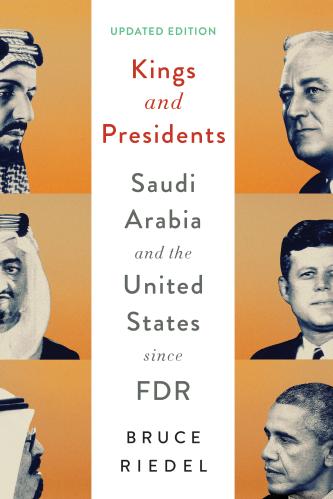
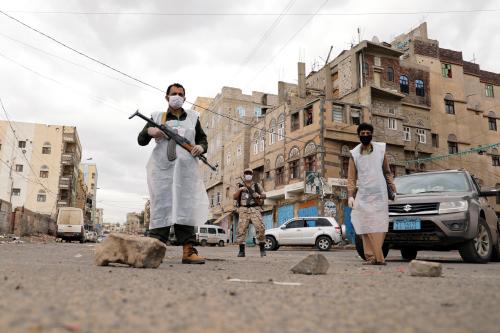
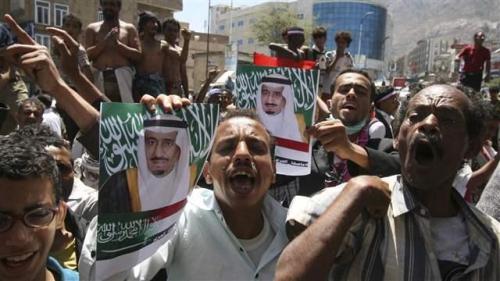
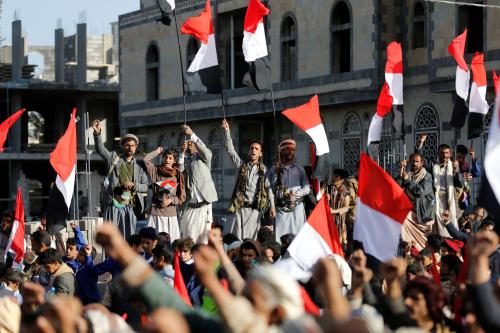


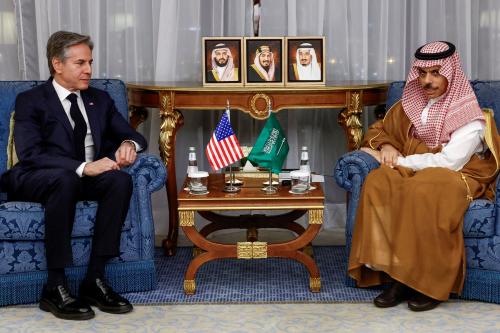

Commentary
What’s behind the sudden ouster of top Saudi military commanders
March 1, 2018